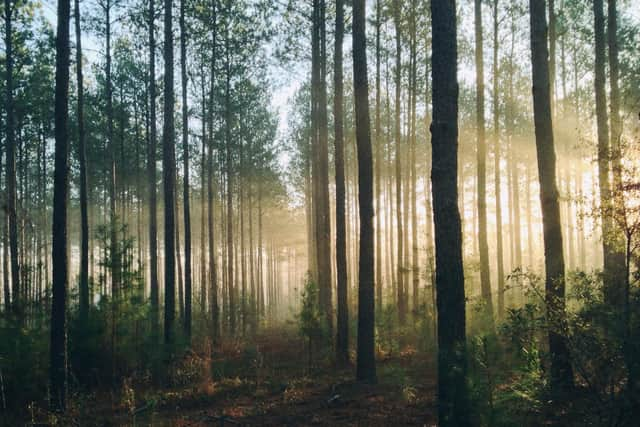The deep joy of getting up early and watching the natural world unfold
Mornings. I love them. I love to get up extra early and soak in the calming stillness. The feeling of life awakening. A window into another world. Well, our world really, the one we so often take for granted. A window into the stretches and yawns of another love of mine: the natural world.
I remember musing on just this theme with fellow early morning enthusiast, Allan Jenkins, editor of Observer Food Monthly and author of Morning: How to make time. Jenkins subscribes to the benefits of getting up early. Not all the time, but now and then. Getting up much earlier than might otherwise feel comfortable.
Advertisement
Hide AdAdvertisement
Hide AdLike Jenkins, I find myself marvelling at just how productive those early hours of morning can be. The neuroscience of sleep is that the process of slumber detoxifies us. It takes food and breaks it down, processes it. Similarly, it takes your thoughts and breaks them down, processing


them. Which is why, so often I find myself going to bed on a seemingly intractable problem and waking up with the solution.
Waking up brings a clearness of thought. An unlocking of untapped capacity. Which helps with things like writing. It is those early morning hours when I find words flow so much better. Seeing things differently.
Mornings are also the time when I delight in seeing the natural world in a different light. Birds are more active, the light is clearer, more charismatic. Insects are louder. The river more imposing. Everything natural seems somehow writ larger.
Living on a farm, I’m surrounded by the living world. Immersed in the changes of the season. The turning of the soil. The passing of pollen from one plant to another, thanks to those hard- working bees.
It’s no accident that early mornings were the time when I’d be out with our rescue dog, Duke, exploring the farmland near home. Drawing inspiration from the four seasons and pouring it into my latest book, Sixty Harvests Left.
Sharing farmland with nature breathes life into hedgerows and fertility into land. The free ranging of pasture-raised farmed animals brings living manure to fertilise the soil, home to insect life that drives the food chain in a glorious upward spiral.
Without fertility in the soil, rainwater just slips through dirt into rivers, taking with it whatever chemical sticking plasters have been applied to the land.
Advertisement
Hide AdAdvertisement
Hide AdWithout fertility in the soil, more carbon stays in the atmosphere, making climate change worse.
Without fertility in the soil, plants can’t get the same micro-nutrients and nor can we. There’s a reason why ‘organic’ food taste better. It’s produced the nature-friendly way.
The countryside farmed in harmony with nature is the heartbeat of our society. It’s what puts food on our tables. Helps keep the climate stable. Gives us air to breathe and water to drink.
It’s the zip that gets me out of bed early in the morning.
As spring advances into summer, getting up for that first breath of morning air means getting up earlier. Yet, the riches that await become that much more rewarding.